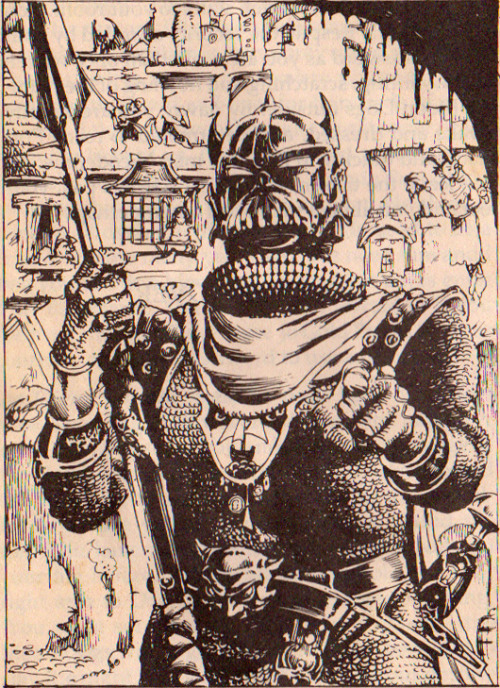With Wyatt declaring what the definition of "fun" is for 4E D&D and how the game should be played. Is that alone enough for someone to be turned off by the system and write the entire thing off as something they'd just as soon not be bothered with?
The issue is that Wyatt didn't declare a definition of "fun". Fun is relative and personal, and if you look at the quote in question he is giving some example of things that
he considers not "fun"
within the context of everything that he has already discussed. If you take the quote into the context of the entire chapter and all the other things he's said in it you don't come about with "He's telling me that what I like is not fun."
When looking at the entirety of the book, and all the quotes that have to deal with "fun" you start to see that his quote has the meaning of don't bore your players. If something is boring to your players then move it along.
The entire chapter is called
Adventures. He uses an incremental mode as he is going over all the information about creating and using adventures. In the section of Fixing Problems he specifically refers to fun again. In here he tells the DM to not have the players "hunting" for the fun, it's frustrating. When things start grinding to a halt, spice them up. In other words don't keep the players in the dark, give them the information that they need to keep moving along. He even specifically says "You don't need to use a combat encounter, but don't hesitate to spring some kind of unexpected occurrence on the characters." He is specifically telling the DM to keep the game moving. Nothing kills the mood of a session worse than boredom at the table. Encounters that are not significant/important to the players are boring.
In the section Building an Adventure he mentions to remember the motives that bring players to the table. And to use those to help everyone have more fun. He is referring to the things the players like and were discussed in the first chapter of the book, the Player Motivations in the section The Players. In the section about Good Structure he once again mentions the player hooks and motivations. Then he goes on to define the Challenges. Here he says that a good adventure provides varied challenges and that those challenges can emphasize attack, defense, skill use, problem solving, investigation and roleplaying. At no point does he say the only thing you can use are combat encounters. And in all this, he is continually saying to keep the motivations of the players as your guidepost.
On the section of Poor Structure he mentions to try to keep the action, the story and the pace moving. Don't keep the players clueless.
The next section is about Quests. Here he specifically mentions that the DM can also use Conflicting Quests that directly tie to the players/characters goals and that the freedom of choices here can present great opportunities for roleplaying and character development. Right below that it mentions that the DM should encourage the players to come up with their own quests tied to their individual goals. He uses the most ignored phase in this whole discussion, "Remember to say yes as often as possible!" The entire chapter, heck the book, is about creating an exciting experience for the players.
At the beginning of the section Encounter Mix, where the quote in question appears, he goes on again and elaborates that there should be variety in an adventure. Adventures should have both combat and non-combat encounters, and easy and difficult encounters. And that these encounters should have "situations that appeal to the player's different personalities and motivations. The variation creates an exciting rhythm." He is once again bringing the players to the game and their motivations as a basis for the excitement.
What he has been saying all along is to use interesting and exciting encounters for your players. When you take that into account the quote falls into its proper context.
"Fun is one element that shouldn't vary. Every encounter in an adventure should be fun.
As much as possible, fast-forward through the parts of an adventure that aren't fun."
The italicized part there is what is being missed. With all the references he has already made to keeping the goals of the players in mind and their motivations, the variations of encounters, etc. He is simply saying if something is not significant, important, or of interest to the players, then move it along. Don't bore your players. Keep the game exciting, and keep it moving.



